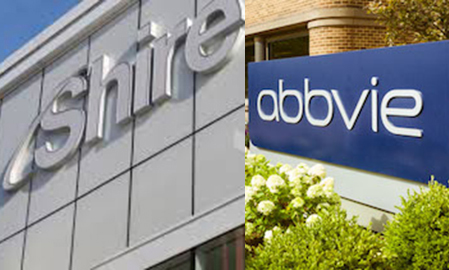AbbVie’s board of directors is reconsidering the plan to acquire Irish-headquartered Shire, the company reported Tuesday. According to the announcement, the board is now scheduled to meet next week to decide whether it will follow through on the $54-billion deal, in light of new measures meant to discourage so-called “tax inversions” which the Treasury Department announced in September. According to The Wall Street Journal, the board’s move is a “strong sign” that those rules are having their intended effect: dissuading companies from relocating abroad for tax breaks. AbbVie’s CEO Richard Gonzalez had insisted that buying Shire was for more than just the tax benefits (it was also designed to decrease the firm’s reliance on best-selling autoimmune drug Humira prior to potential low-priced competition). It’s also an about face for management. Gonzalez sent a memo to Shire employees last month saying that they still planned to go through with the transaction, and another AbbVie executive notified AbbVie employees around the same time that the deal would close in Q4 2014. If the board reverses course and shareholders vote down the deal, AbbVie would be required to pay an estimated $1.6 billion to Shire.
The Ebola virus doesn’t appear to be leaving headlines anytime soon. President Barack Obama plans to discuss the epidemic on Wednesday over a video conference with British, French, German and Italian leaders, Reuters tell us. The news service also reports that the virus has created a swell in demand for hazardous material suits and face masks, particularly from government and international agencies. The World Health Organization says three million suits will be needed to quell the outbreak globally, and that the virus is killing 70% of people who contract it. Early Wednesday, Columbia implemented measures to deny entry to travelers from West African countries affected by Ebola. Columbia is the first Latin American country to do so, and joins African countries Sierra Leone and Kenya, which have also adopted the measure. Ebola continues to spread in Guinea, Sierra Leone and Liberia—as well as in an unrelated outbreak in the Republic of Congo.
Some doctors appear to be coming around to the Affordable Care Act. According to a recent survey by physician staffing agency The Medicus Firm, physicians were asked to award an overall grade to the legislation this year, and the percentage of respondents who gave it an “A” rose slightly to 8%,from 6% last year. The number of physicians who deemed the law a failure decreased, as well—from 30% in 2013, to just 22% this year. Twenty three percent gave the ACA a top grade for “improving access to healthcare.” The bill’s greatest failure, according to docs, was “improving efficiency of healthcare”—only 7% of physicians gave the ACA an “A” in that category.The researchers polled 2,272 physicians from 19 specialties and 50 states.
Teva will have its day in the US Supreme Court today over multiple sclerosis therapy Copaxone, Reuters reported Wednesday. The Israeli drugmaker is appealing a judge’s 2013 dismissal of lawsuits brought against Mylan and Sandoz for allegedly infringing patents covering the drug. Teva is looking to extend the drug’s patent life through September 2015; the patent expired this past May. Businessweek reported in March that the company had managed to migrate 8.7% of current users to its new three-times-a week 40mg version, from the older 20mg version, as of February 28.
Eisai announced Tuesday that its new drug application for levatinib—an investigational treatment for advanced thyroid cancer—has received Priority Review designation from the FDA. The drug, an oral tyrosine kinase inhibitor, has already received Orphan Drug designation in the US, Japan and Europe. It is also being investigated in non-small cell lung cancer, and other solid tumors.








